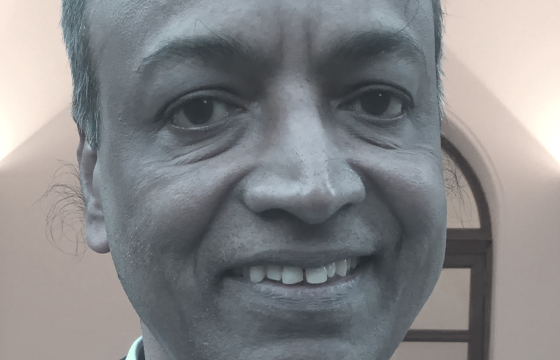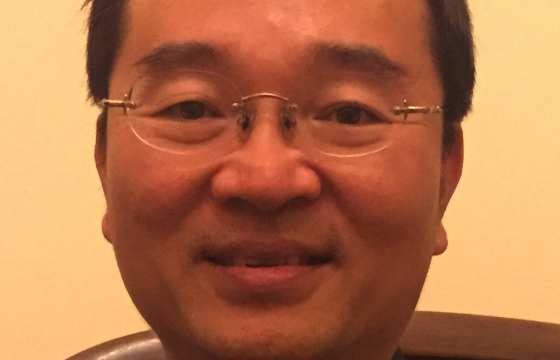Establishing good relations between the Church and China is still a dream for the Jesuits four hundred years after St Francis Xavier died on an island off the mainland. It is a dream too for Francis, the first Jesuit Pope. These are the words of the Society of Jesus’ current leader in China, Fr John Lee Hua S.J.
In an interview with The Tablet, Fr Lee says Chinese Catholics believe Francis will realise his dream. He believes this in spite of the many setbacks in recent years to efforts to re-establish diplomatic relations between the Holy See and the Peoples’ Republic of China.
A key sticking point has been whether the Church or the Chinese Government should have the final say in the appointment of bishops.
But Fr Lee’s ministry is a world away from this question. He characterises the work of the Jesuits in China as trying their best “to understand, to make friends and to serve.”
Fr Lee is Provincial of the Chinese province and is attending a gathering of Jesuits in Rome that is preparing to elect a new leader for the order towards the end of next week. We sit down to talk in a sitting room in an ancient palazzo that serves as a Jesuit residence close to the church of St Ignatius in the city centre. Though it is 8.30pm and the end of a long day of discussions at the Jesuits 36th General Congregation, Fr Lee speaks with great energy and fluency.
The Chinese province takes in mainland China, Hong Kong, Macao and Taiwan. Of the 170 Jesuits, the biggest group works in Taiwan. Teaching is their main activity though they also work as pastors and on social projects to support the poor. Half the Jesuits are Chinese, the other half are foreigners from 30 different countries.
Born in 1966, Fr Lee is from a third generation Catholic family in Taiwan. He was drawn to the Jesuits after discovering Ignatian spirituality at university. After military service and a period working he decided to join the Jesuits.
Within the Society of Jesus, he led the training of novices in the Philippines for three years before being sent to work in the Chinese province for six years. He has served as Provincial since 2012.
Like all religious orders in the region, Fr Lee says the Jesuits are careful to tailor their ministry according to the local situation and government guidelines.
In China, they are allowed to provide scholarships to enable poor children in rural areas to go to school. They also support lepers. The aim, he explains, is to diminish the gap between rich and poor, educated and uneducated, city and rural dwellers.
He says: “It seems that the gaps are everywhere in China. Reconciliation is a very important thing for us. Gaps in civil society breed anger and resentment. I think the Government is also aware of this.”
He describes social work in China as “very good” but that the Jesuit approach goes one step further by creating dialogue between different parties.
“We try to create opportunities for people to talk. For example, when we are helping the poor we try to bring all the parties together: the government officers, social workers, poor people, we outsiders. We all come together to look at the situation, what needs to be done and how. Through this kind of dialogue all the parties gradually understand the point from the other side better.”
With this approach he says the Jesuits in China are following the footsteps of the Jesuit missionary to China, Matteo Ricci (1552-1610). Ricci followed in the tradition of Francis Xavier in identifying positive aspects of other cultures.
“So many Jesuits have taught us a lot of lessons through their failures, through their wisdom, through their experiences. Many foreign Jesuits went to China. Their dream was to deliver God to the Chinese people, but eventually they found that God was already there. So they just needed to experience God through the Chinese culture.”
Jesuits in China today, says Fr Lee, still want to introduce Eastern wisdom to the West.
“We Chinese Jesuits believe that Chinese culture, philosophy and wisdom can really enrich the whole Church. We are still looking at how we can do this…it is not to build a huge Church and to say ‘We are strong’. That would be inappropriate.”
Fr Lee says that Jesuits are still eager to come to China and he describes a programme he runs for young Jesuit scholastics to experience Chinese culture.
He believes that Pope Francis is also influenced by the example of Francis Xavier.
“Francis has a dream for China. He takes concrete steps to tackle this issue. I know many people are working behind the scenes to improve the relationship between China and the Vatican. The West and East sometimes misunderstand each other. Pope Francis is eager is open the dialogue. But of course, at the same time, some people in China are worried because once you take one step forward you might feel insecure. At the same time most Chinese Catholics are confident in Pope Francis. We believe he will make a decision led by the Holy Spirit for the good of China and the Chinese Church.”
Nobody knows exactly how many Catholics there are in China. Fr Lee believes there are at least eight million. Francis’ dream is their dream too.




 Loading ...
Loading ...